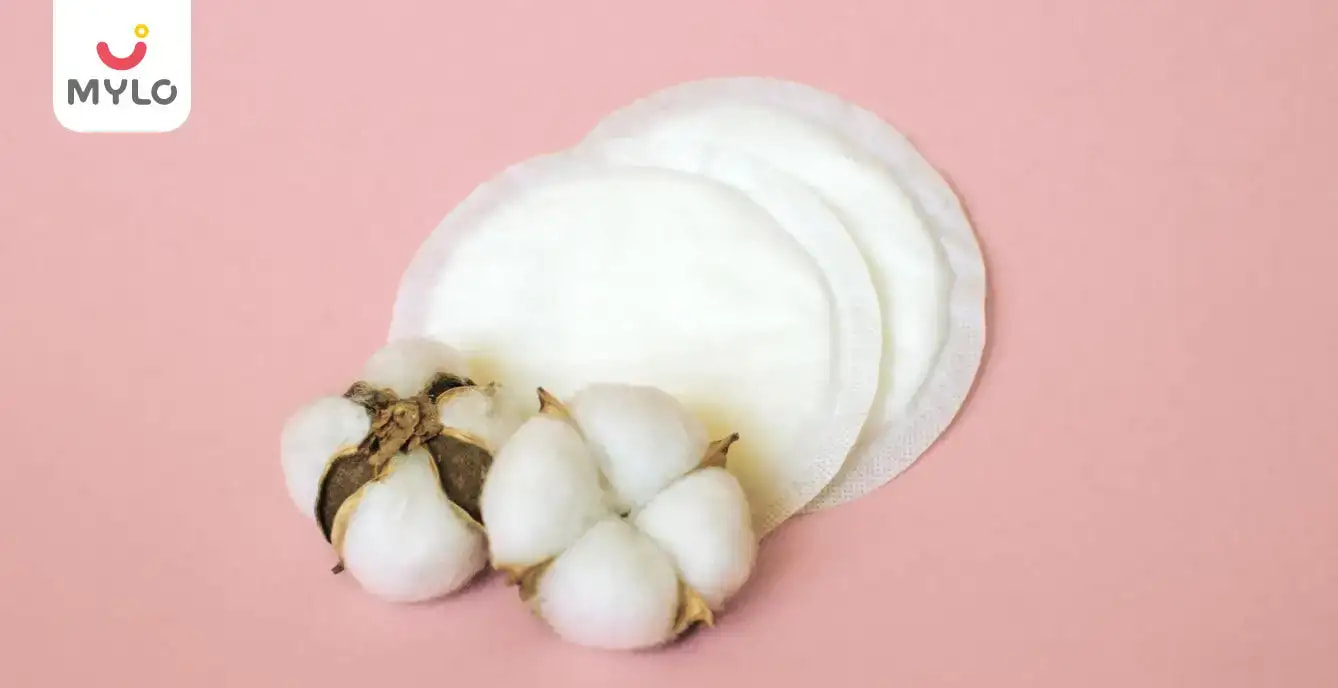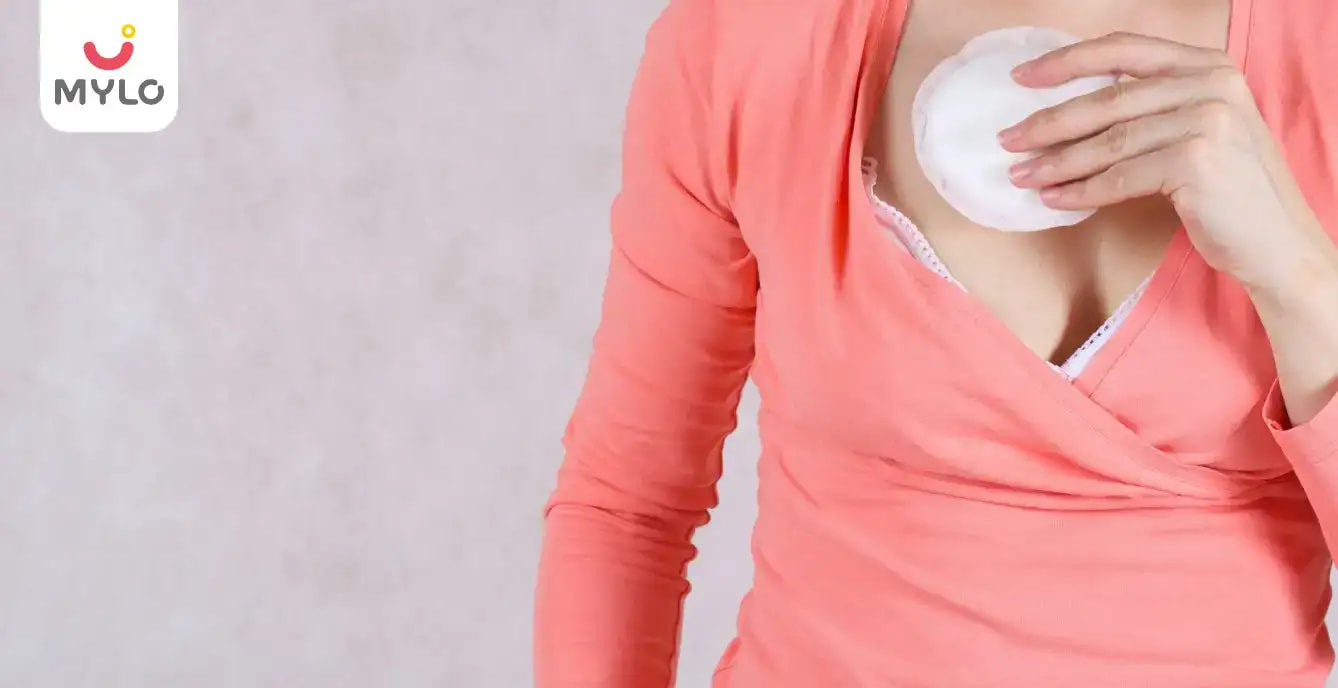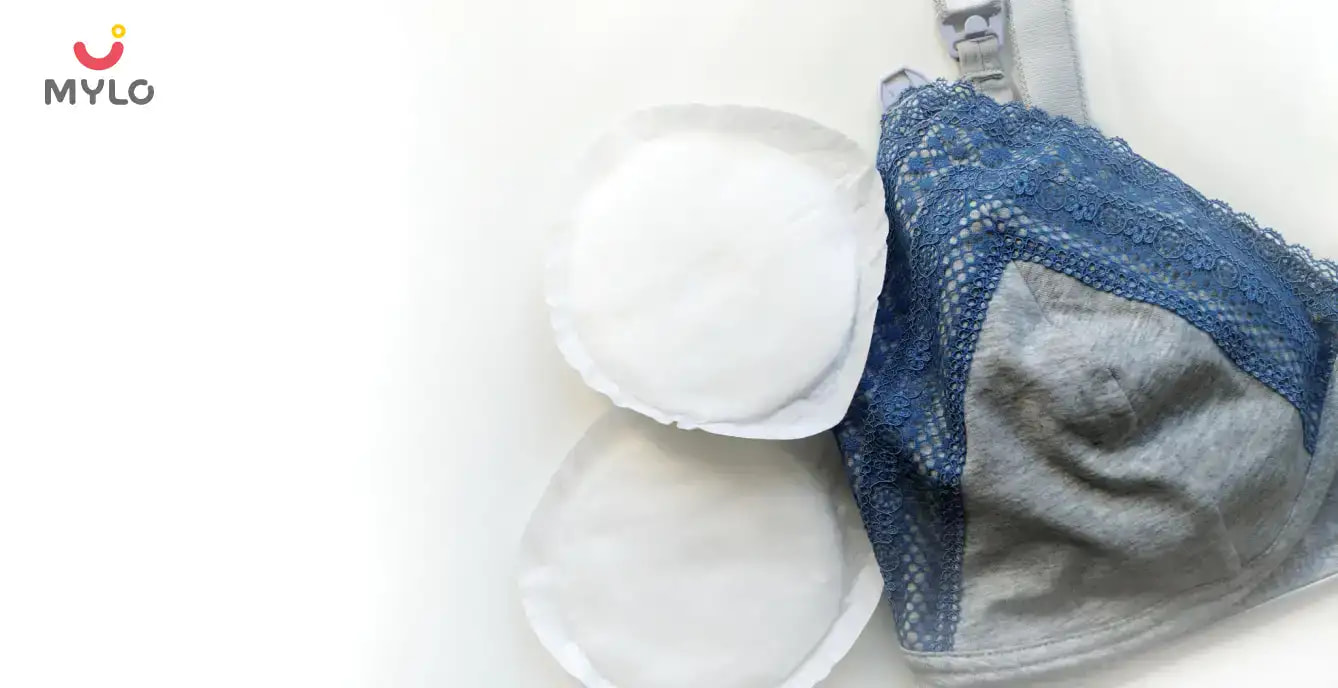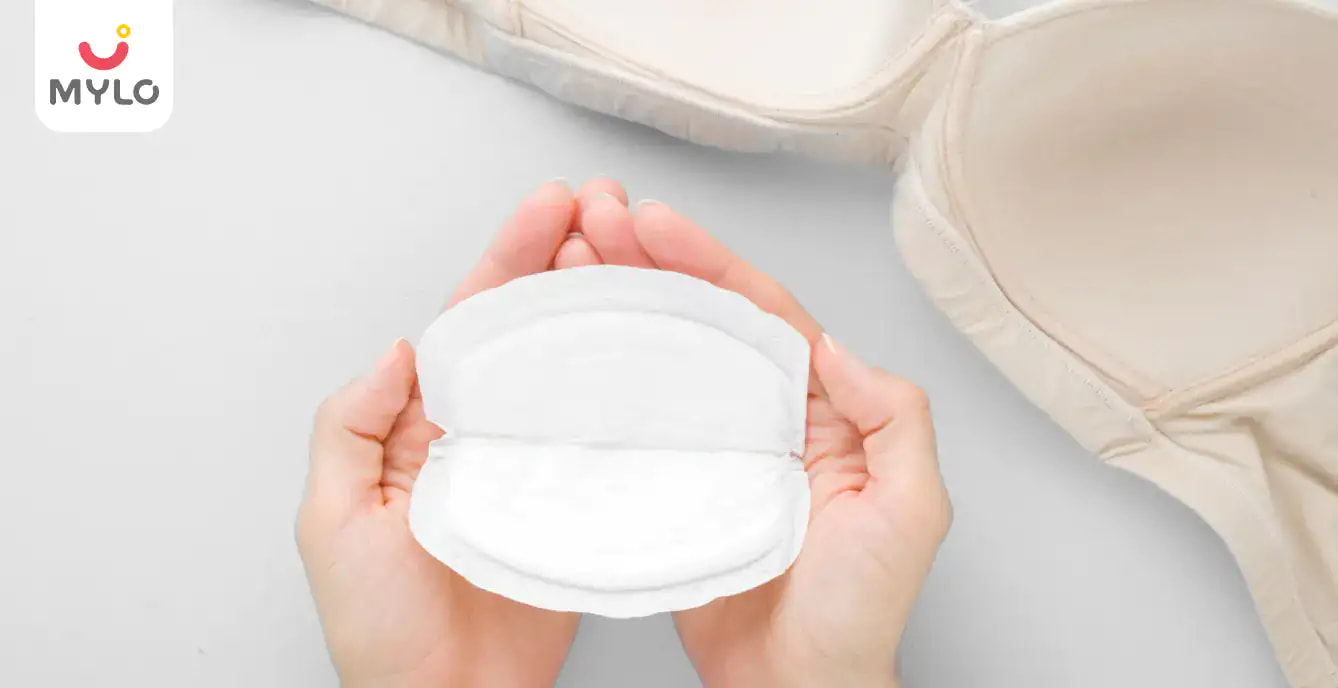Home

Breastfeeding & Lactation

Is It Safe to Wear Nursing Pads Throughout the Day?
In this Article
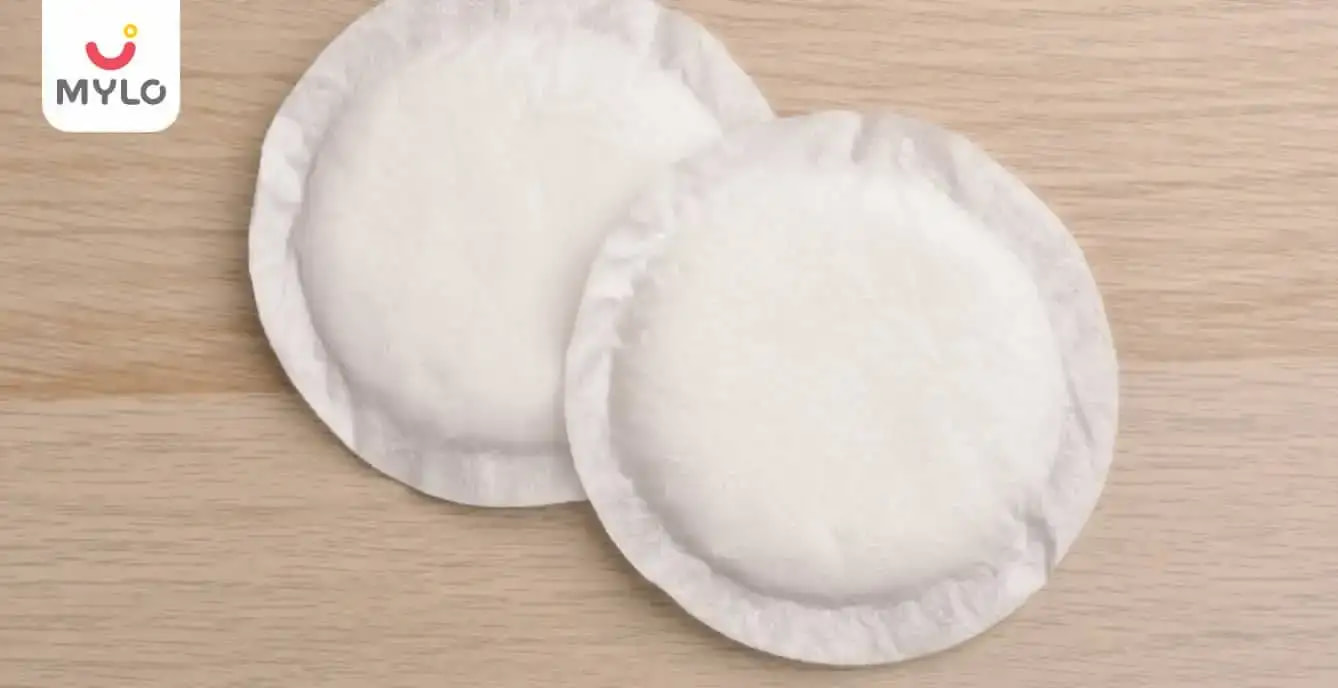
Breastfeeding & Lactation
Is It Safe to Wear Nursing Pads Throughout the Day?
Updated on 3 November 2023
Indeed, breastfeeding may sometimes turn out to be another responsibility for a new mom, the term itself coming in with a lot of accessories. One might have to think about purchasing new nursing bras, along with breastmilk pumps and nursing pads. Apart from that, you may also have to make time to fulfill numerous baby activities, especially if you are a working mom! However, nursing pads can indeed turn out to be one of the most important things that every mother needs!
Besides, you might have to take a long time to decide what items you can live without and what items are a must. So, is it important for one to purchase nursing pads? Is it alright to wear them continuously throughout the day? Continue reading through to learn more!
Some women may wear nursing pads continuously. However, some only switch to such pads when nursing their baby. You may also want to stick to a nursing pad when in public. Apart from that, a clean handkerchief that is neatly folded inside your inner-wear can also be comforting. Make sure to avoid plastic-lined nursing pads since such pads can restrict ventilation in the chest region.
What Exactly Is A Nursing Pad?
A good quality nursing pad is made of a good material, that can hold extra drops of breastmilk from the nipple of a lactating mother. Nursing pads are quite absorbent, and they prevent the leakage of milk on your clothes. In fact, these pads are similar to pads that are used for menstruation. If you have been experiencing sore nipples, nursing pads can turn out to be an excellent choice!
When Will A Mother Require Nursing Pads?
During the initial weeks, a lactating mother might experience an excess of breast milk production. In fact, the nipples might constantly keep leaking breast milk out. Sometimes, not breastfeeding can lead to the breasts getting quite full, eventually leading to milk leakage.
Milk leakage can take place due to numerous environmental factors as well. If you hear a crying baby, it might trigger the production of excess milk. You can consider wearing nursing pads at night since it can turn out to be extremely beneficial and helpful. Your sleeping positions might lead to the squeezing of your breasts, eventually leading to milk leakage.
How Should You Wear Good Quality Nursing Pads?
It is quite easy to use nursing breast pads. Besides, there are numerous designs and patterns that serve different purposes. One can opt for nursing pads that are best suited for nights or opt for nursing pads that are best suited for daytime activities. One can wear a nursing pad by keeping it inside their bra, right in between the inner part of the bra and the nipple. A few bras come with nursing pads to make it more convenient for you.
You can go for adhesive nursing pads or pocket nursing pads. Adhesive nursing pads can stick to the inner region of your bra, whereas pocket nursing pads can be slipped into the pockets of your bras. You can consider purchasing nursing pads of your choice, or whichever feels more comfortable and convenient for you!
What Are Some Of The Different Types Of Nursing Pads?
Some of the different types of nursing pads are listed below for your convenience.
1. Disposable Nursing Pads
These pads can only be used one and might have to be thrown once you are done using them. Such nursing pads may be adhesive as well as soft. In fact, they are quite similar to panty liners. Using disposable nursing pads can turn out to be way more convenient for you as compared to reusable ones! Yet again, considering the money that goes into purchasing these pads over and over again, it is usually best to stick to reusable nursing pads!
2. Reusable Nursing Pads
These nursing pads for bras can be used after every use. Such pads do not come with any adhesiveness, and bamboo is a typical material that is used for making such types of nursing pads. Yet again, you will want to wash your nursing pads quite well after every use in order to prevent the growth of bacteria.
3. Silicone Nursing Pads
Apart from the reusable and disposable ones, there are numerous other varieties of nursing pads as well! A few of them include silicone pads, and they fulfill the purpose of preventing leaks quite efficiently. These types of pads directly stick to the breasts instead of the bra and hence prevent leaks.
Silicone nursing pads are quite useful, especially during times when you do not want to wear a bra. For example, one can stick to silicone pads when going for a swim or a relaxing weekend getaway! Yet again, it may be best to use such types of pads occasionally since they can lead to the clogging of milk ducts as well as the occurrence of thrush.
4. Hydrogel Nursing Pads
If you are experiencing cracked or even sore nipples, then hydrogel nursing pads can turn out to be an excellent choice! These pads have somewhat of a cooling effect that prevents friction between the clothing and your sensitive nipples. Hydrogel pads were used back in the old days, especially when breastfeeding. Just like Silicone nursing pads, hydrogel nursing pads stick to your skin and prevent any sort of ventilation in the chest region.
When Should You Consider Changing Your Nursing Pads?
Since you are a mother who constantly breastfeeds her child, you do not want to keep moisture near or around your nipple region for a long time. Thus, this is because keeping moisture in this region for too long can lead to bacterial growth, eventually causing an infection of the skin!
Therefore, you may want to relate the milk leakage to the changing of a nursing pad. Therefore, if your nursing pad is dry, you can leave it in your bra without any risks. However, if it has already become wet, it may be high time for you to change it as soon as possible!
Many washable nursing pads have numerous layers of material that can help in absorbing the leaking milk more efficiently, thus keeping the out layer dry. Yet again, one of the most crucial things to remember is to change the nursing pad as soon as it is wet. You may also want to change your nursing pad at night since sleeping with a wet pad for too long can result in an infection of the skin around your nipple region.
Your main aim should be to prevent the leakage of milk on bed sheets, clothes, or anywhere else. If you are leaking heavily and are unable to sleep, consider changing nursing pads as many times as possible.
You may like: Is it safe to use reusable nursing pads during breastfeeding?
What Are Some Of The Cons Of Using A Nursing Pad?
Sometimes, keeping a wet nursing pad on your chest can lead to an infection of the nipples. In fact, it may result in the growth of yeast or even a fungal infection. Yet again, without the nursing pads, you would have had milk leak onto your clothes, leading to the wetness of the region around the chest anyways! Hence, a nursing pad can turn out to be quite helpful either way.
When at home, you can rest topless sometimes to let your nipples breathe as much as possible. If you are wearing your top, you may want to consider wearing a clean and dry nursing pad in order to avoid milk leakage. If you face any issues, you can book an appointment with your doctor and learn more about how you can avoid such problems!
How Many Times In A Day Should You Change Your Nursing Pads?
Considering the minimum level, you may want to keep one pair of nursing pads for the day besides keeping another one for the night. It is best to change your nursing pads before they are completely wet. However, if you have been experiencing heavy leaks, it may be best to buy a third pack of nursing pads as a reliable backup. Apart from that, you can also ensure that your breastfeeding nursing bras have enough time to dry after a wash!
The only thing you may have to bother about is the growth of bacteria in the nursing pads. It is important for you to understand that bacteria can survive in moist as well as warm environments, and thus, a wet nursing pad can turn out to be an ideal environment for such microorganisms. Therefore, consider changing your breast pads as soon as you realize they are damp or wet. Thus, this way, you can avoid the build-up of moisture around your nipple region.
If you are wondering about how to clean your nursing pads, then you do not have to bother at all! All you actually have to do is keep the nursing pads in a wash bag. You can then slip the wash bag into the washing machine and dry the pads flat. You do not need any sort of softener or bleach to clean the pads. Make sure not to iron or dry clean your nursing pads!



Written by
Khushboo Jain
Get baby's diet chart, and growth tips

Related Articles
Related Questions
Influenza and boostrix injection kisiko laga hai kya 8 month pregnancy me and q lagta hai ye plz reply me

Hai.... My last period was in feb 24. I tested in 40 th day morning 3:30 .. That is faint line .. I conculed mylo thz app also.... And I asked tha dr wait for 3 to 5 days ... Im also waiting ... Then I test today 4:15 test is sooooo faint ... And I feel in ma body no pregnancy symptoms. What can I do .

Baby kicks KB Marta hai Plz tell mi

PCOD kya hota hai

How to detect pcos

RECENTLY PUBLISHED ARTICLES
our most recent articles

Diet & Nutrition
গর্ভাবস্থায় আলুবোখরা: উপকারিতা ও ঝুঁকি | Prunes During Pregnancy: Benefits & Risks in Bengali

Diet & Nutrition
গর্ভাবস্থায় হিং | ঝুঁকি, সুবিধা এবং অন্যান্য চিকিৎসা | Hing During Pregnancy | Risks, Benefits & Other Treatments in Bengali

Women Specific Issues
স্তনের উপর সাদা দাগ: লক্ষণ, কারণ এবং চিকিৎসা | White Spots on Nipple: Causes, Symptoms, and Treatments in Bengali

Diet & Nutrition
গর্ভাবস্থায় পোহা: উপকারিতা, ধরণ এবং রেসিপি | Poha During Pregnancy: Benefits, Types & Recipes in Bengali

Diet & Nutrition
গর্ভাবস্থায় মাছ: উপকারিতা এবং ঝুঁকি | Fish In Pregnancy: Benefits and Risks in Bengali

Diet & Nutrition
গর্ভাবস্থায় রেড ওয়াইন: পার্শ্ব প্রতিক্রিয়া এবং নির্দেশিকা | Red Wine During Pregnancy: Side Effects & Guidelines in Bengali
- ইনার থাই চ্যাফিং: কারণ, উপসর্গ এবং চিকিৎসা | Inner Thigh Chafing: Causes, Symptoms & Treatment in Bengali
- গর্ভাবস্থায় ব্রাউন রাইস: উপকারিতা ও সতর্কতা | Brown Rice During Pregnancy: Benefits & Precautions in Bengali
- Velamentous Cord Insertion - Precautions, Results & Safety
- Unlock the Secret to Flawless Skin: 7 Must-Have Qualities in a Face Serum
- Unlock the Secret to Radiant Skin: How Vitamin C Serum Can Transform Your Complexion
- Gender No Bar: 10 Reasons Why Everyone Needs a Body Lotion
- Unlock the Secret to Radiant Skin How to Choose the Perfect Body Lotion for Your Skin Type
- Top 10 Reasons to Apply a Body Lotion After Every Bath
- Communication in Toddlers: Milestones & Activities
- How to Improve Vocabulary for Toddlers?
- A Comprehensive Guide to Understanding Placenta Accreta
- Vulvovaginitis in Toddlers Causes, Symptoms and Treatment
- A Comprehensive Guide to Understanding Cerebral Palsy in Children
- Bitter Taste in Mouth During Pregnancy: Understanding the Causes and Remedies


AWARDS AND RECOGNITION

Mylo wins Forbes D2C Disruptor award

Mylo wins The Economic Times Promising Brands 2022
AS SEEN IN

- Mylo Care: Effective and science-backed personal care and wellness solutions for a joyful you.
- Mylo Baby: Science-backed, gentle and effective personal care & hygiene range for your little one.
- Mylo Community: Trusted and empathetic community of 10mn+ parents and experts.
Product Categories
baby carrier | baby soap | baby wipes | stretch marks cream | baby cream | baby shampoo | baby massage oil | baby hair oil | stretch marks oil | baby body wash | baby powder | baby lotion | diaper rash cream | newborn diapers | teether | baby kajal | baby diapers | cloth diapers |



